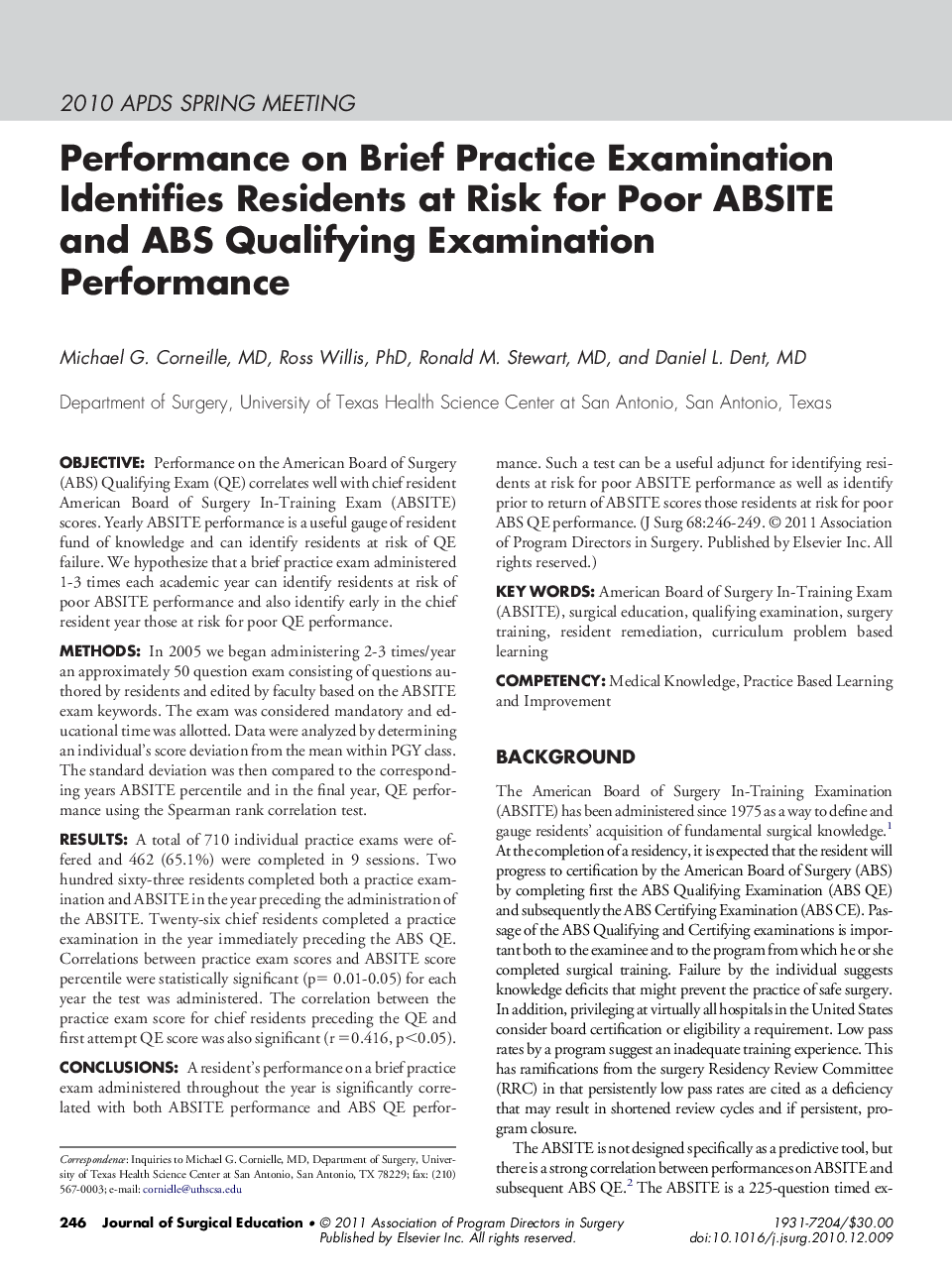| Article ID | Journal | Published Year | Pages | File Type |
|---|---|---|---|---|
| 4298398 | Journal of Surgical Education | 2011 | 4 Pages |
ObjectivePerformance on the American Board of Surgery (ABS) Qualifying Exam (QE) correlates well with chief resident American Board of Surgery In-Training Exam (ABSITE) scores. Yearly ABSITE performance is a useful gauge of resident fund of knowledge and can identify residents at risk of QE failure. We hypothesize that a brief practice exam administered 1-3 times each academic year can identify residents at risk of poor ABSITE performance and also identify early in the chief resident year those at risk for poor QE performance.MethodsIn 2005 we began administering 2-3 times/year an approximately 50 question exam consisting of questions authored by residents and edited by faculty based on the ABSITE exam keywords. The exam was considered mandatory and educational time was allotted. Data were analyzed by determining an individual’s score deviation from the mean within PGY class. The standard deviation was then compared to the corresponding years ABSITE percentile and in the final year, QE performance using the Spearman rank correlation test.ResultsA total of 710 individual practice exams were offered and 462 (65.1%) were completed in 9 sessions. Two hundred sixty-three residents completed both a practice examination and ABSITE in the year preceding the administration of the ABSITE. Twenty-six chief residents completed a practice examination in the year immediately preceding the ABS QE. Correlations between practice exam scores and ABSITE score percentile were statistically significant (p= 0.01-0.05) for each year the test was administered. The correlation between the practice exam score for chief residents preceding the QE and first attempt QE score was also significant (r =0.416, p<0.05).ConclusionsA resident’s performance on a brief practice exam administered throughout the year is significantly correlated with both ABSITE performance and ABS QE performance. Such a test can be a useful adjunct for identifying residents at risk for poor ABSITE performance as well as identify prior to return of ABSITE scores those residents at risk for poor ABS QE performance.
